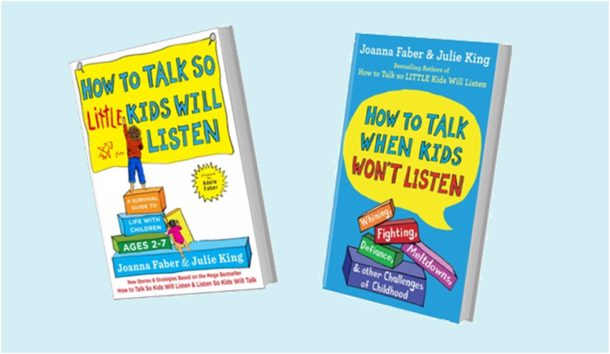Have your kids ever announced, upon opening a gift, “I already have this!” or angrily declared, “This isn’t the one I wanted!” or simply burst into tears? (Ours have!) This kind of scene can cause great distress to the startled giver, great embarrassment to the hapless parent, and a general sense of looming dread around holiday time.
The urge is to lecture our kids about all the less-fortunate children in the world, or to punish them by suspending future gift-giving until they learn to show the proper attitude of gratitude. However appealing these tactics may seem, none of them tend to create the grateful child of our dreams.
As we head into the potentially hazardous season of gift exchange, now is a good time to start preparing children to be gracious gift recipients and head off hurt feelings and mortification. Here are some ideas to get you started:
1) Acknowledge feelings first
At a neutral time, talk with your kids about getting presents that are disappointing. You can share memories from your own childhood when you were disappointed, or even offended, by a present you received – the toy that was “too babyish,” or the sweater that was both itchy and ugly. Talk about how hard it is to be polite when you expect something wonderful and get something you don’t want. This is a good time (when your child is not in a state of emotional anguish) to point out that, after all, the gift giver was thinking of you and trying to please you, and it’s important not to make that person feel bad.
2) Practice through play
Prepare for the big moment by playing the “Present Giving Game.” Your child can find something thoroughly unappealing to wrap and give to you — a rock, a spoon, a cup of dirt. Now your challenge is to unwrap it and say something nice. “Oh, look at this beautiful rock. It’s so hard and smooth, I’ll use it as a paperweight.” Or, “Wow, what a shiny spoon. I can’t wait to stir my tea with it.” Or, “This dirt is just what I need to plant my flower seeds.” Now reverse the challenge and wrap something icky for your child to open.
Here’s a variation on the theme — you can give a “terrible” response: “Oh no, not another dirty tissue; I already have so many of these.” “That’s not my favorite color; why didn’t you buy me green mittens?” “I hate this kind of broken crayon. You wasted your money!” “Ok, thanks. What else did you get me?” Your child can have a laugh at your expense and then she can instruct you on what you should have said.
3) Adjust your expectations of your child
Try to reduce the frenzy of anticipation. Living with shiny, wrapped presents under the tree for days can be too much for some youngsters. A child’s imagination can go wild trying to guess what is in that box. The reality often cannot measure up. All the wondrous possibilities suddenly disappear! Some young children do better when given an unwrapped gift, or when told ahead of time what they are going to get. This may take some of the “magic” out of gift giving, but remind yourself that your child’s ability to handle anticipation and appreciate surprises will blossom with age.
Another way to take the pressure off of gift giving is to emphasize special activities such as cookie baking, games or making holiday crafts. Eight nights of Hanukkah gift giving can cause the strongest among us to buckle. Many families have found relief in declaring some nights to be gift giving nights, other nights to be Hanukkah themed song, story and game nights, and other nights to be special food nights (grating spuds for the ceremonial potato latkes!)
Even very young children can start to see themselves as givers instead of just receivers by making gifts for other people in their family. You’ll need to break out the glitter glue, the feathers and the pipe cleaners. Then you can model the behavior you hope to see in the future from your child. “Ooh, look at this sparkly spiral! I’m going to put it next to my bed, so it makes me happy when I open my eyes in the morning.”
It’s challenging for little kids to navigate the emotional drama of gift exchange. It’s not a moral failing on their part, or on the part of their parents, when they don’t get it right. They just need to learn, and with time and compassion from us, they will.
(c) Faber and King 2016
